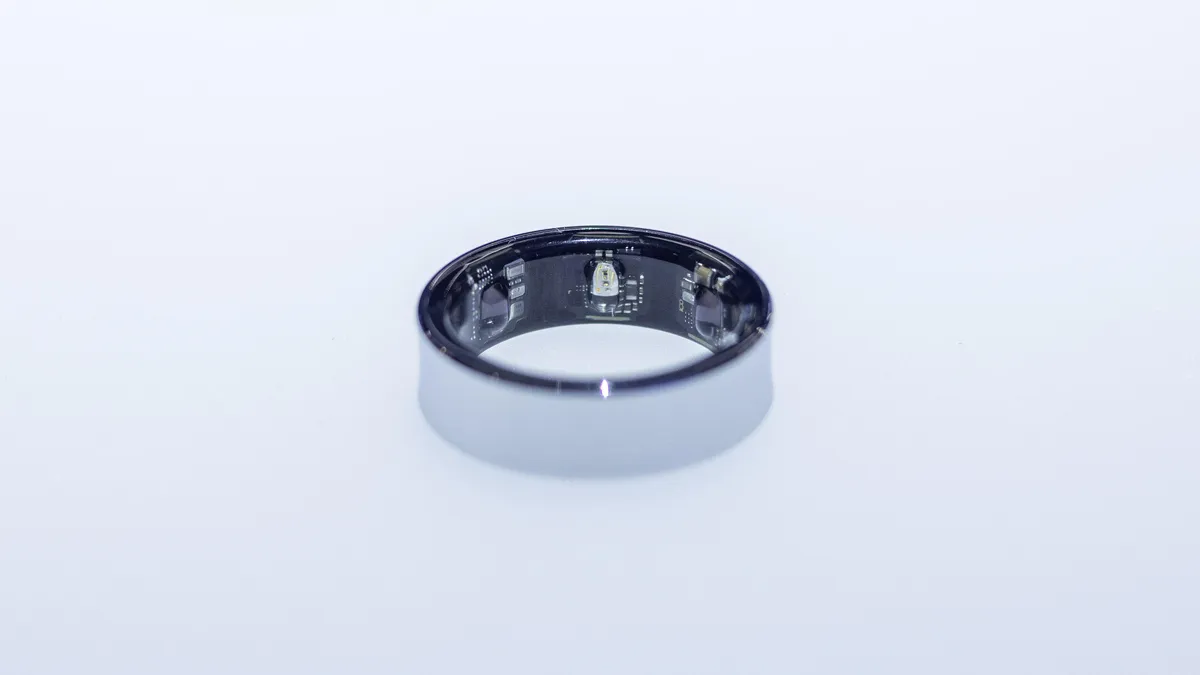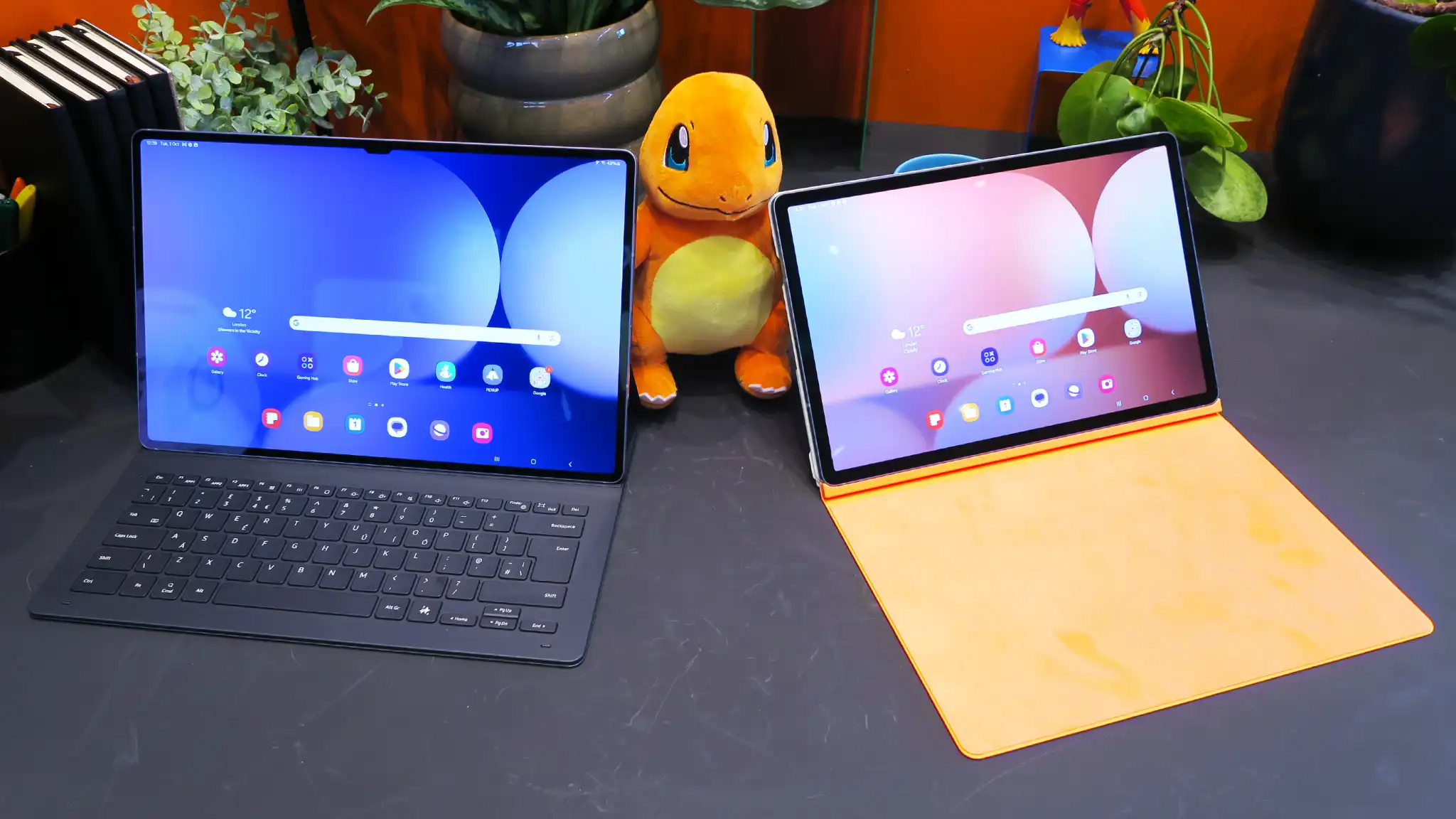Commentary: Samsung’s upcoming My Vitality Score feature for the Galaxy Ring and Galaxy Watch is another reminder that the Apple Watch lacks recovery metrics.
The Apple Watch has become a comprehensive wellness tracker and fitness monitor over the last decade, gaining new capabilities with each passing year, such as nighttime temperature sensing and performance metrics like ground contact time for runners.
But there’s one big area where it still falls behind rival trackers: recovery and readiness. While Apple provides health trends and highlights, it still lacks a score or rating that ties all those metrics together to paint a picture of your current state. Oura, Garmin and Fitbit trackers have offered this for years, and soon enough Samsung will too. The smartphone giant is launching a new feature called My Vitality Score in its Samsung Health app later this year.
The score collates sleep, activity, resting heart rate and heart rate variability data to determine your physical and mental readiness, much like Oura’s Readiness score, Fitbit’s Daily Readiness rating and Garmin’s Body Battery. It’ll be compatible with the company’s upcoming Galaxy Ring and its line of Galaxy smartwatches.
Samsung isn’t breaking new ground with My Vitality Score, but the addition should make Samsung’s wearables more comprehensive by filling in a gap it was previously missing. Wearing devices from Oura and Garmin has made me wish every smartwatch and fitness tracker had these features, and it’s another sign that Apple has catching up to do in this regard.
Why recovery is important
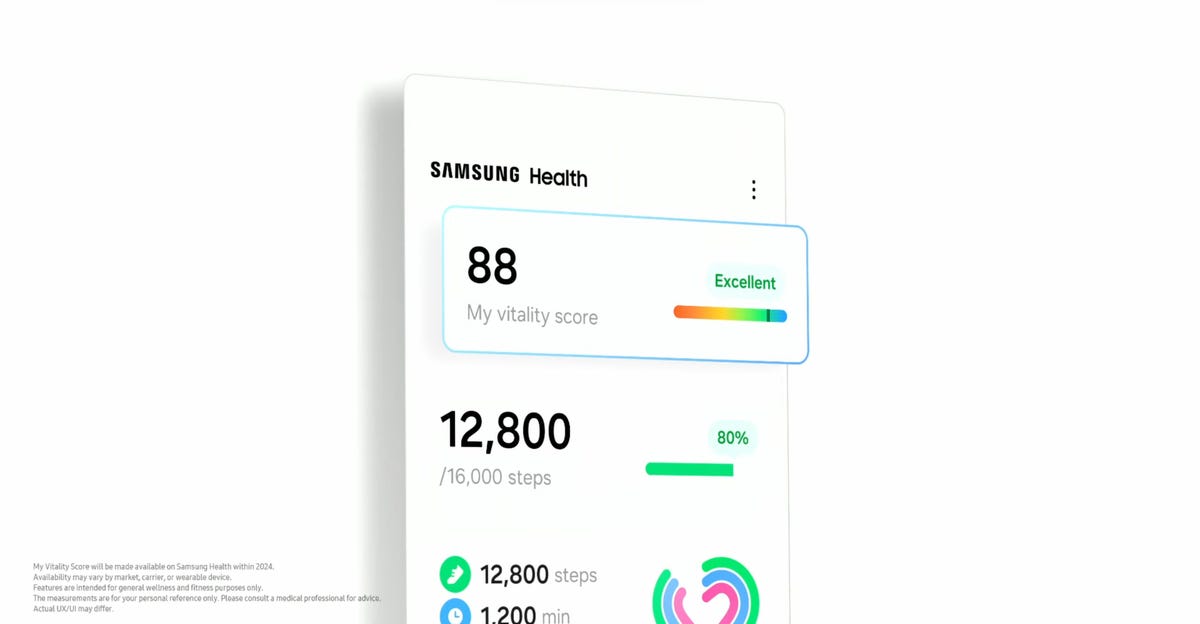
Rest days are an important part of any exercise regimen. Not only do they give your muscles time to recover, but they can reduce the risk of injury and boost your performance, as a medically reviewed article from Healthline outlines.
Readiness scores in fitness apps can help you know when it’s time to take one of those hard-earned rest days. I’ll admit, I don’t always follow this advice myself. But when I am feeling exhausted or burned out, tools like Oura’s Readiness score and Garmin’s Body Battery validate my feelings and give me that extra bit of motivation I need to prioritize recovery instead of working out.
One of the best examples I can recall happened earlier this year, when I came down with a minor upper respiratory infection. I knew I wasn’t feeling well, but sometimes it can be hard to tell whether you’re actually sick or just run down from a busy schedule. After a particularly rough night during which I barely slept because I couldn’t get comfortable, the Readiness score in the Oura app told me everything I needed to know. I scored 37 out of 100, which is the lowest Readiness score I’ve ever had. On top of that, the app also showed that my body temperature was elevated overnight.
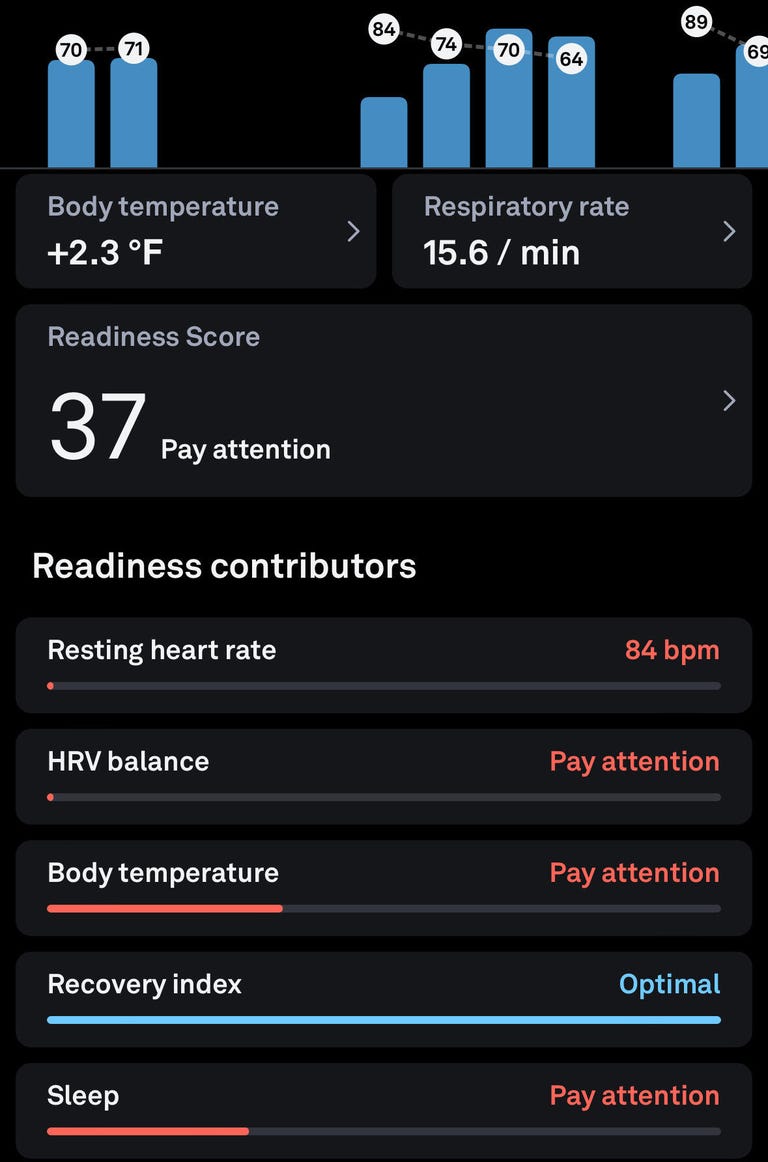
While the Oura ring and other similar devices aren’t meant for issuing a medical diagnosis, its findings told me something was off. It provided further convincing that I was actually sick and not just worn out from a few late nights and long work days.
Garmin’s Body Battery is similarly helpful; when reviewing the Garmin Venu 3, I enjoyed getting notifications alerting me when long stretches of rest contributed to “recharging” my battery.
What makes these statistics interesting and useful is that they go beyond just reciting numbers and noticing trends. Instead, these scores actually influence my behavior by offering meaningful context. Metrics like heart rate variability, sleeping patterns and activity levels don’t always mean much on their own, but seeing how they fit together takes it to another level.
Of course, a Readiness score is just that — another number that can be easily ignored, just like notifications from your phone or watch. It’s also important to remember that Samsung hasn’t even launched My Vitality Score yet, so it’s impossible to know whether it’s accurate or useful.
But if it’s anything like these tools from Garmin or Oura, there’s a lot to look forward to. Plus, Samsung doesn’t charge a subscription fee for its health app like Oura and Google do, possibly giving it an important edge over those competitors.
The Apple Watch is missing a recovery score
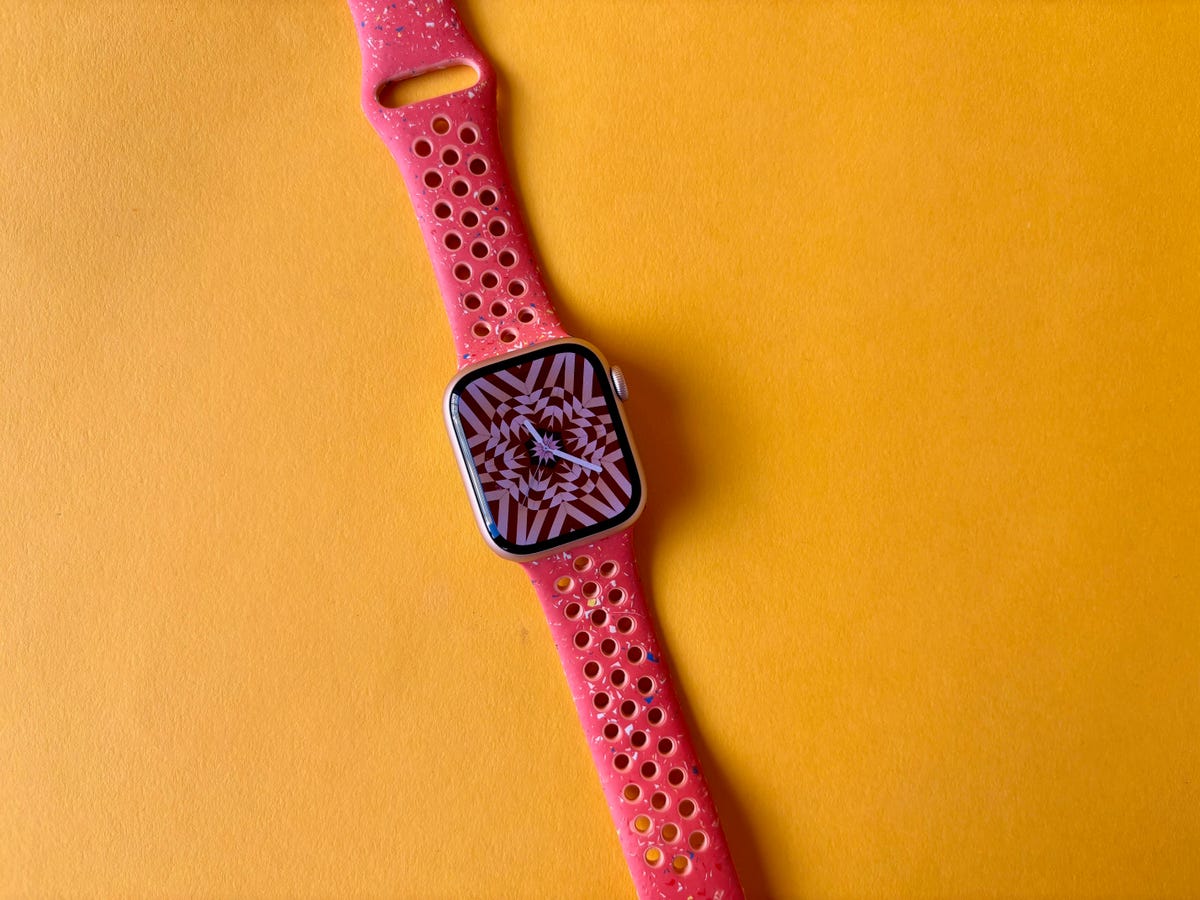
The Apple Watch has come a long way over the past few years, but there’s still no readiness or recovery score. Instead, Apple focuses on highlighting specific trends across different categories like workouts, heart rate, active energy and even your headphones’ volume levels.
For example, within a few seconds of opening the Apple Health app, I can already tell that my average workout time for the past seven days was 45 minutes. Apple also tells me that I’ve been walking less than I usually do on a typical day.
That information is certainly valuable. But having some type of score or rating that could link those data points would be even better, perhaps giving me an understanding of the areas in which I need to improve. When my Readiness score is low, for instance, I know that means I should make an effort to hit the sack a little earlier that evening and squeeze in a rigorous workout the next morning.

